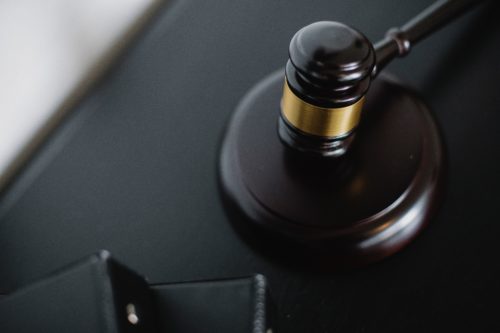
On October 3, 2023, Allen Harris PLLC — along with local counsel Jonathan Vogel of Vogel Law PLLC — filed a petition for a writ of certiorari asking the Supreme Court to overturn a ruling of the U.S. Court of Appeals for the Fourth Circuit that dramatically limits the free speech rights of public university faculty.
Stephen Porter, a professor in the College of Education at North Carolina State University (NCSU), is an outspoken critic of the growth of the “Diversity, Equity, and Inclusion” (DEI) bureaucracies at American universities. In particular, Porter has been increasingly critical of what he sees as universities’ prioritization of DEI over academic rigor.
In recent years, Porter expressed these concerns both within and outside of his university. In addition to publishing a blog that referred to a popular higher-education conference as a “woke joke,” Porter expressed concern within his department about the addition of a diversity question to student course evaluations and about NCSU’s rush to hire a minority candidate with a troubling background.
As Porter grew more vocal, NCSU slowly reduced his role within his department in a way that compromised his ability to perform core functions of his job, such as advising Ph.D. students.
In September 2021, Porter filed a federal lawsuit against NCSU in North Carolina, alleging that NCSU retaliated against him for engaging in constitutionally protected speech. After the lower court dismissed his case, he appealed to the U.S. Court of Appeals for the Fourth Circuit.
In a 2-1 decision, the Fourth Circuit ruled against Porter, finding that his criticisms of DEI within his department were not protected by the First Amendment because they were made pursuant to his employment. With regard to the “woke joke” blog posted to his personal website, the majority reluctantly conceded that it was protected speech, but held that Porter hadn’t shown a sufficient connection between the blog post and NCSU’s adverse employment actions.
In a blistering dissent, Judge Julius Richardson accused his colleagues on the bench of developing “a new ‘bad man’ theory of the law: identify the bad man; he loses.” Richardson argued that even though Porter made some of his criticisms in the workplace, they should still receive constitutional protection because these criticisms were not part of his job duties; rather, he was sharing his views as a private citizen on a matter of public concern.
This is an area of the law where the Supreme Court has left significant ambiguity. It has long been established that the government has greater leeway to restrict the speech of its employees than it has to restrict the speech of citizens at large; nevertheless, public employees cannot be subjected to adverse employment actions for comments made as private citizens on matters of public concern. Pickering v. Bd. of Educ., 391 U.S. 563 (1968).
In 2006, however, the Supreme Court narrowed its protection of public employees’ free speech rights in Garcetti v. Ceballos, where it held that when a public employee’s speech is made pursuant to his or her job duties, it is not entitled to First Amendment protection, even when it relates to a matter of public concern. Garcetti v. Ceballos, 547 U.S. 410 (2006).
Garcetti acknowledged, however, that there may be special academic freedom considerations when it comes to the speech of public university faculty, even for speech made pursuant to their job duties. So the Court left open a very significant question:
There is some argument that expression related to academic scholarship or classroom instruction implicates additional constitutional interests that are not fully accounted for by this Court’s customary employee-speech jurisprudence. We need not, and for that reason do not, decide whether the analysis we conduct today would apply in the same manner to a case involving speech related to scholarship or teaching.
Garcetti, 547 U.S. at 425 (emphasis added).
In the seventeen years since Garcetti, two major splits have emerged among the federal circuit courts. First, while five circuit courts (including the Fourth Circuit) have explicitly held that speech related to scholarship and teaching is not subject to Garcetti, the other seven circuit courts have not yet ruled on that issue.
Second, with the Fourth Circuit’s decision in Porter, a split has emerged even among the courts to recognize an academic exception to Garcetti — a split over what, exactly, constitutes “speech related to scholarship and teaching.”
For this reason, Porter filed a petition for a writ of certiorari to the Supreme Court on October 3, 2023, asking the Court to clarify once and for all both whether there is an academic exception to Garcetti and, if so, what types of speech are “related to scholarship and teaching.”
This question urgently needs to be resolved because currently, public university faculty whose views diverge from the current campus orthodoxy are frequently subjected to retaliation in ways both large and small. The result is a dangerous ideological uniformity within academia that undermines universities’ traditional function as a marketplace of ideas.